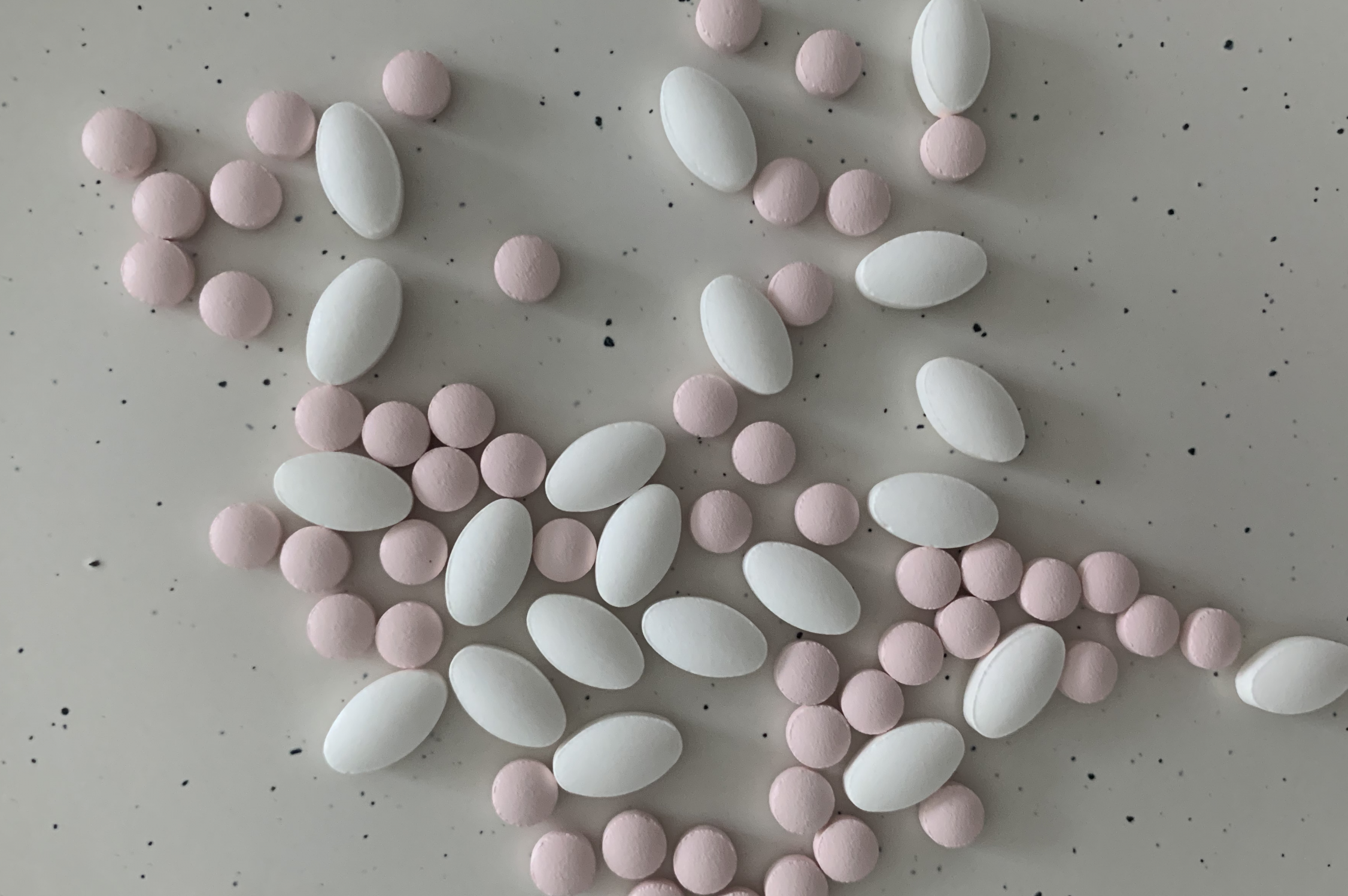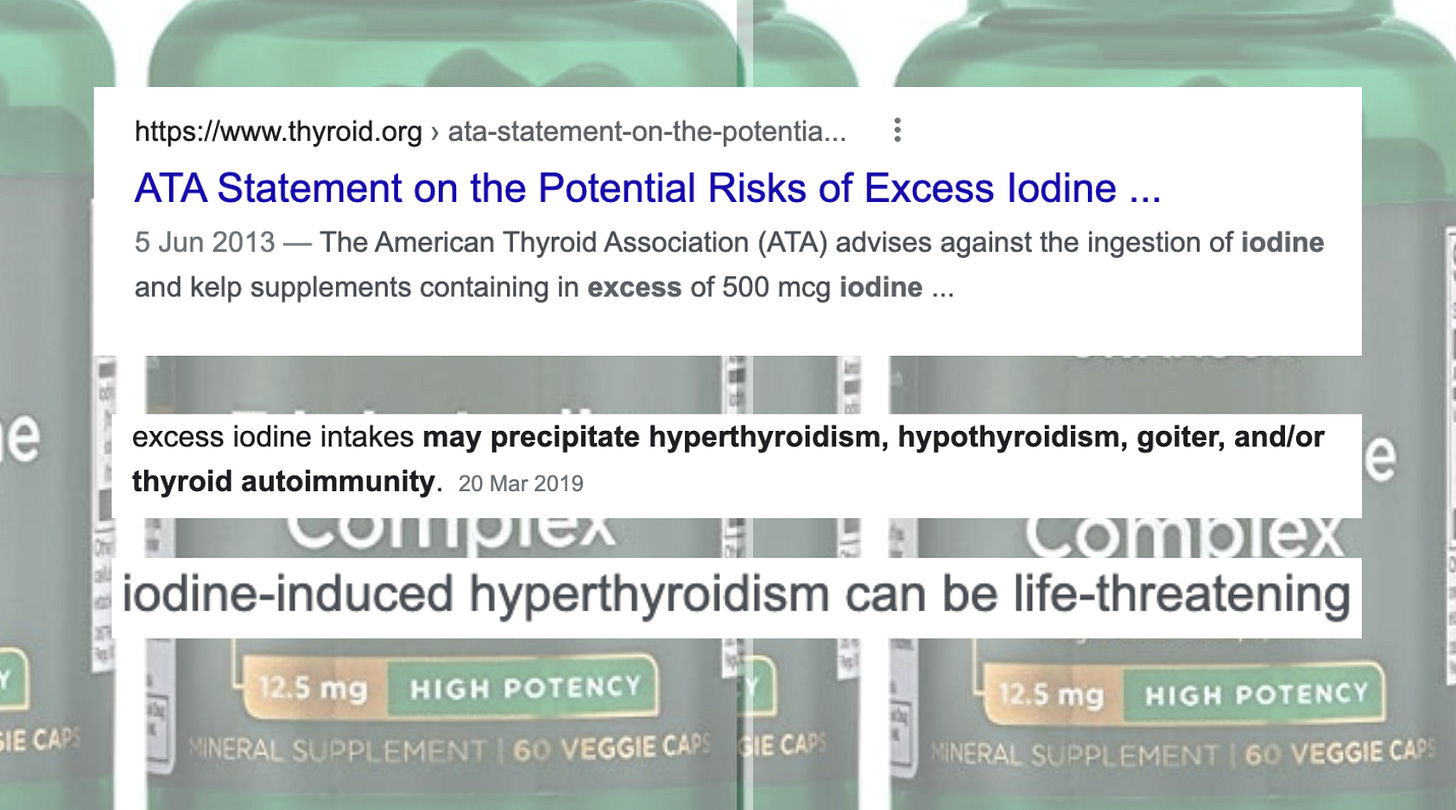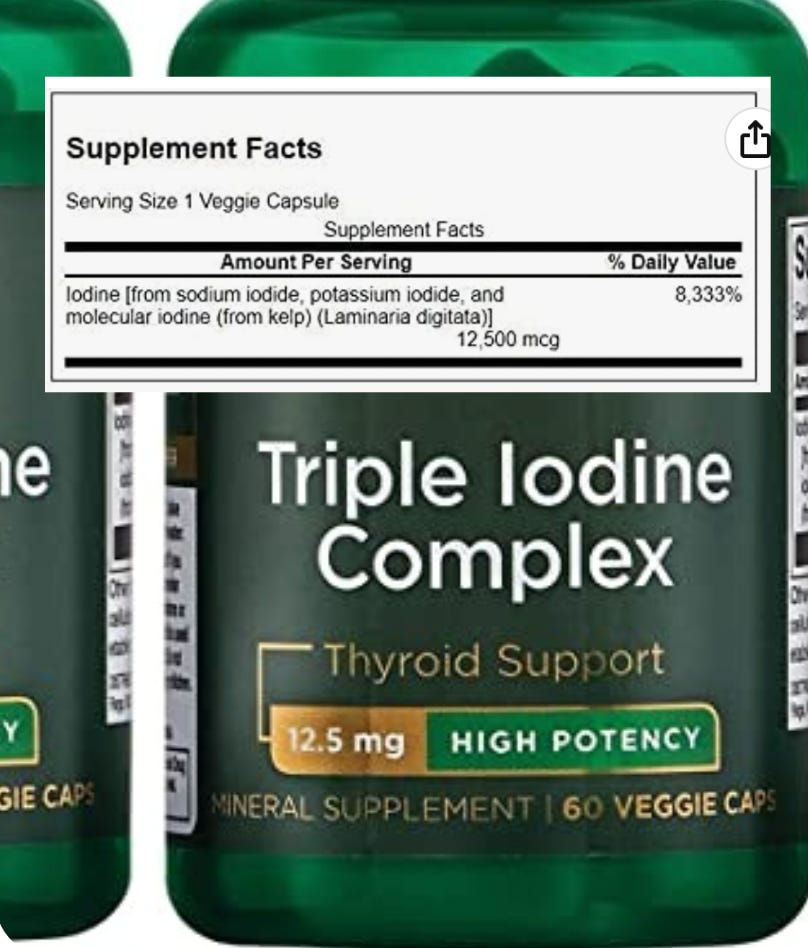
I recently covered the evidence showing fertility supplements can help us get pregnant faster, stay pregnant and have the healthiest pregnancy possible. But if the right fertility supplements are powerful enough to do all that, that begs the question, what can the wrong supplements do?
And it’s the exact opposite.
They can make getting pregnant harder, cause or increase the risk of miscarriage and harm the health of your pregnancy. Plus, put your overall health and in some cases, life at risk.
Sounds scary, right?
It is scary. And as a fertility dietitian when I see the handfuls of supplements people take? It scares the f*cking sh*t out of me.
I get it, there is something about supplements that seem so harmless.
Like, they’re natural, right?
But what does natural even mean? They come from plants? Heroin comes from a plant, but I’m guessing you know that taking it while TTC isn’t a good idea. Most pharmaceuticals have their origins in natural products, would you consider them natural? And you wouldn’t you take a prescription medication while TTC or pregnant without checking with your doctor first, right?
And, not that being “natural” is better, but most supplements are actually synthetic versions of naturally occurring compounds anyway. They’re usually cheaper, more stable and more predictable that way.
Natural or synthetic, if they can impact our cycles, our egg health, implantation, our fertility in a positive way then they can do the opposite too. For so many fertility supplements we don’t have the research to know which way it’s going to go. We don’t know how they interact with other supplements, nutrients or medications.
They work for so many people though…
Do they? I know that the people who take CoQ10 (just an example!) and then finally get pregnant are LOUDLY online raving about it. It’s hard to ignore and let’s be honest, who doesn’t want to take a pill and get pregnant the next cycle because of it? But for every one of those people shouting that you need to take this, there are hundreds (1000s?) of other people who took it and didn’t get pregnant and wasted a shit load of money for nothing.
And then there are also at least a few who might’ve been worse off for taking it.
How can a supplement make you worse off though?
Unfortunately, lots of ways.
Firstly, even the nutrients we need are only good for us in certain quantities.
Take iodine for example. Iodine is a mineral that is key for our thyroid hormones to function. These hormones work closely with our reproductive hormones, making iodine a key nutrient while TTC and during pregnancy. But iodine is also toxic in high doses. Like having too little, too much iodine disrupts our thyroid hormones (messing with our fertility in the process) and can lead to thyroid cancer, coma and even death (NIH).

Guidelines for the maximum supplemental dose range from 300 to 500 mcg per day, with some even recommending a lower maximum of 220 mcg per day during TTC and pregnancy.

So you can imagine me falling off my f*cking chair when a client who was TTC showed me that she was taking this. Plus even more iodine in her prenatal.
So the MAX maximum supplemental amount should be 500 mcg and one single capsule of this 12,500 mcg. I’m not exaggerating when I say this should be illegal. And yet, this isn’t even a practitioner-only supplement, this is over the counter.
I want very clearly say, that it wasn’t my clients fault for taking this. She knew that iodine is important while TTC and had been told that as a vegan she needed to make sure she was getting enough. So “triple potency” sounded good to her, of course it did! She is a smart, successful woman in finance. She’s not a dietitian, it’s not her job to know that more than 8000% times the daily recommended dose is toxic. Afterall, plenty of supplements adverstise being above the daily requirement as a good thing. And she was just taking one pill a day, the dose on the jar, it didn’t feel like a lot!
I still feel white-hot rage thinking about this. This shouldn’t be allowed to happen. I hate to think how it could’ve affected the pregnancy if she’d been able to conceive and continued to take this not knowing.
But they wouldn’t be allowed to sell them if they were dangerous.
I wish this was the case but unfortunately, capitalism.
Supplements are unregulated.
This means they can sell products like the one above. It also means that no one is checking to see if they even contain what it says on the tin.
So let’s just say you were taking the correct dose of iodine (about 150 mcg per day). Great right? Unfortunately, it might not actually have that much in it. It could be around that, it could be less or more or even none.
This is one of the reasons that I recommend people only take supplements that are third-party tested.
The other key reason is that studies show that supplements often contain undeclared pharmaceuticals, bacterial contamination and/or heavy metals, such as lead and arsenic.
You read that right, you could be unknowingly taking meds, giving yourself food poisoning or consuming arsenic.
Here’s Jen Gunther from The Vajenda talking about some of the evidence on heavy metal contamination in PRENATALS specifically:
For example, in a study published in 2018 from Canada, 51 prenatal vitamins from 26 brands were tested, and 20 samples exceeded the threshold for lead, which they set at 0.5 mcg/day (this is the level from Proposition 65 in California). Yes, 40% of the samples. One product had 4.0 mcg Three samples had toxic levels of thallium, and three had levels of inorganic arsenic over the accepted safe range! In 2021, Spotlight on America tested over 220 prenatal vitamins, and 25 exceeded the 0.5 mcg/day Prop 65 limit for lead.
Literally, go put your supplements in the bin if they’re not third-party tested. And as Jen suggests, write to your reps asking for better regulation in the supplement industry!
Okay, so you’ve made sure your supplements are third-party tested and not in crazy high doses, does that mean your good? Not necessarily.
What is good for you might not be good for someone else.
Iron is a perfect example of this in many ways. Do you need iron when you’re TTC? Well, that depends.
Do you have heavy periods? Do you eat much red meat? What about other sources of dietary iron? What are your iron levels right now? What have your iron levels been like previously? Do you have any medical conditions that affect iron absorption?
One study found that unnecessary iron supplements preconception can increase the risk of gestational diabetes in pregnancy. But iron deficiency (which can affect up to 1 in 3) can impact fertility and going into pregnancy with iron deficiency increases the risk of pregnancy loss and of iron deficiency in pregnancy.
You also need to consider how iron supplements affect your bowels. Different types of iron affect people differently of course and if a supplement is making you constipated or giving you diarrhea that’s not going to be the one for you. Can you find a different one or should you try to get more dietary iron instead?
Plus, if you’ve got both iron and calcium in your prenatal they may interfere with the absorption of each other. Is it more important for you to be taking calcium or iron? What is your calcium intake like? Bone health? Family history of osteoporosis and preeclampsia? Etc etc. Maybe you do need both iron and calcium but at separate times? It’s a lot.
Ideally, everyone trying to conceive and pregnant should have their supplement regimen specifically tailored by a professional.
Reviewing fertility supplements is part of what I do for my Blueprint clients, but I’ve been thinking lately about how I can make this more accessible. I don’t have an answer yet but I’m trialling some ways to do this at the moment. DM me if you’re interested in getting your supplements checked and being involved.
A final disclaimer, as I said in my last supplement post: please don’t take this to mean you should stop taking folate. The evidence that folic acid supplements help prevent neural tube defects is strong and should not be ignored. Find a third-party tested folate and get your other supplements reviewed by a fertility or pregnancy dietitian ASAP.
So long story short:
The supplement industry is ridiculously unregulated
Nutrients can both help and harm us – sometimes the dose makes the poison!
Supplements often contain pharmaceuticals, bacterial or heavy metals, so you need third-party tested supplements
Everyone has different requirements so you should have your fertility supplements professionally tailored to suit your unique needs
back to top
Foodbaby WAS FOUNDED on Kulin Nation land. We acknowledge the Wurundjeri people, Indigenous Australians, who are the Traditional Custodians of this land. We pay our respects to all Aboriginal and Torres Strait Islander Peoples and their Elders past, present and emerging.
Fertility dietitian, cycles nerd, lover of food and squishy newborn baby cuddles. I help people get pregnant (fast) and have the healthiest pregnancies possible.
Hey, I'm Ami
@foodbabyfertility